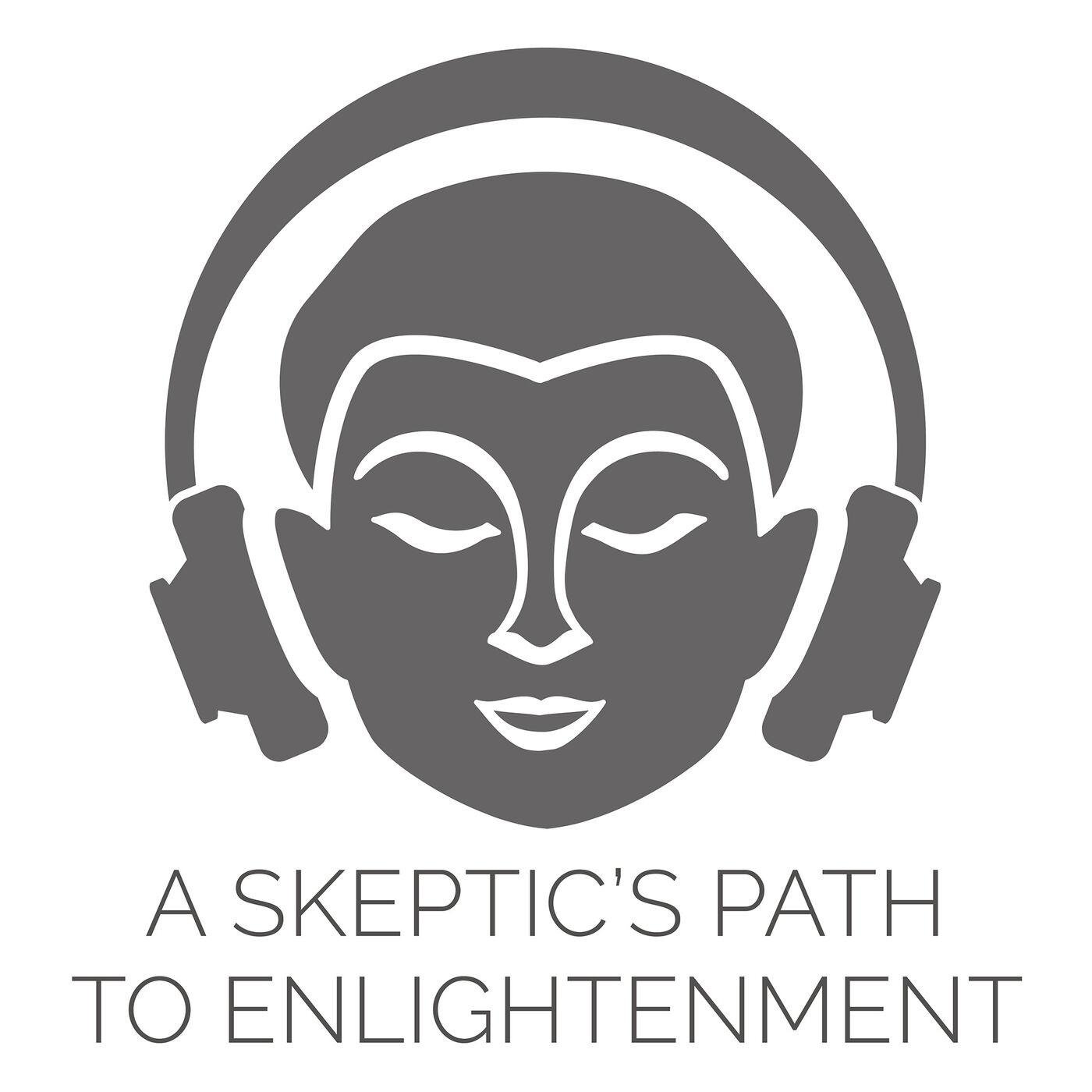
The How to Train a Happy Mind podcast brings meditation to modern people hungry for happy, meaningful lives. Each week, host Scott Snibbe and his guests share powerful mind training techniques that go beyond mindfulness to harness our intelligence, emotions, and imagination. Learn how to build a happy mind, fulfilling relationships, and a better world through a secular approach to meditation that is based on modern science and psychology, yet grounded in the authentic thousand-year old Tibetan Buddhist tradition of analytical meditation. <br><br>How to Train a Happy Mind is a project of the nonprofit Skeptic's Path to Enlightenment. Our host, Scott Snibbe, is a twenty-five-year student of Tibetan Buddhism whose teachers include His Holiness the Dalai Lama and Lama Zopa Rinpoche. Snibbe is the author of the popular <em>How to Train a Happy Mind</em> book, and leads meditation classes and retreats worldwide infused with science, humor, and the realities of the modern world.</p>
A guided meditation on love, or loving-kindness, the expansive form of love wishing happiness not only to friends and family but to all beings everywhere including our enemies. In the language of Buddhism, metta or maitri.
Episode 26. Guided Meditation on Love
If you're looking for a thoughtful gift this holiday season, the book How to Train a Happy Mind, offers simple, practical ways to create a happier mind, fulfilling relationships, and a better world. Combining timeless Buddhist wisdom with modern science, it's a funny, accessible guide to letting go of anger, craving, and fear while cultivating genuine fulfillment.
NPR's Laura Sydell talks with Scott Snibbe about his book, How to Train a Happy Mind, at The Battery in San Francisco. They discuss interdependence (or emptiness) at length and also how great movies and comedians, like Jerry Seinfeld, can capture Buddhism's insights into how to live happy lives.
Episode 176: NPR's Laura Sydell Talks with Scott Snibbe
Love is complex in our culture, tied up with finding a single person to satisfy our huge list of needs and dreams who we then grant the exclusive gift of our affection. But love—loving-kindness from the Buddhist perspective—is simpler, free from attachment. It's wishing others to be happy.
Episode 25: What Is Love?
The recent U.S. election has left our country more divided than ever, with Donald Trump elected as the next president. Whether this news fills you with hope or despair, today's episode offers a fresh perspective on how we can respond with curiosity, compassion, and a commitment to finding common ground even when it feels impossible.
Scott shares his personal reflections on nonviolence, the deeper motivations that drive us all, and how you can still recognize the fundamental goodness in everyone, even those you vehemently disagree with. Through meditation and thoughtful exploration, you'll learn to soften your anger with equanimity, transform criticism into compassion, and uncover the ways your mind shape your experience of reality.
Episode #175: Compassion for our Country: Meditations for Healing After a Divisive Election
Kazu Haga leads a powerful guided meditation for letting go of anger and other negative emotions based on the principles of nonviolence. Haga, a renowned nonviolence and restorative justice trainer, combines analytical meditation, visualization, breathwork, and mindfulness meditation to cultivate loving-kindness, inner peace, and compassion.
Episode 174: Meditation on Nonviolence with Kazu Haga
Kazu Haga's book, Healing Resistance, explains that nonviolence isn't just refraining from harm, but a sophisticated six-step strategy that begins with research and dialogue and ends, most importantly, with reconciliation. He explains that the purpose of nonviolence is not just to create a change we desire in the world, but to heal relationships and enrich our sense of connectedness, respect, and interdependence with all beings.
Kazu graciously took time off from raising his five-month-old child to speak about why nonviolence works and how to counter the common objections to nonviolence. Scott and Kazu also talk about healing from the violence in their own families, and strategies for ending the seemingly intractable wars in the Middle East and Ukraine.
Episode 173: Does Nonviolent Protest Work? Kazu Haga
This episode is in honor and celebration of the life of Greg Hillis.
Christian Scholar Greg Hillis speaks of the parallels between Christianity and Buddhism, the possibility of universal love, mystical experiences that break through to the beauty and interconnectedness of reality, and social activism that respects—and even loves—those we disagree with.
Episode 108: Universal Love in Christianity & Buddhism with Greg Hillis
The Buddhist meditation on equanimity teaches a technique to eliminate bias and expand our love and concern from family and friends to strangers and even enemies. It tames our fierce attachment to loved ones and our anger toward enemies for a stabler, happier mind and a more just and equitable world.
Episode 23: Guided Meditation: Transforming Bias with Equanimity
In everyday life we’re torn between fierce attachment to our loved ones and anger at those that give us trouble. But Buddhism, democracy, and social justice tell us that all people deserve the same rights and freedoms: we’re all equal and we all deserve happiness. The Buddhist meditation on equanimity, applied to our everyday relationships and the painful daily news, teaches us a technique of “spiritual democracy” for developing healthy feelings of connection to others—even those we most despise.
Episode 22. Spiritual Democracy
This powerful guided meditation for letting go of negative emotions with Paula Chichester helps cultivate love, mindfulness, and inner peace. Whether you're a beginner or deepening an existing meditation practice, this session invites you to take deep breaths, visualize love, and be fully present, embracing the flow of life with mindfulness.
Episode 172: Loving Yourself, Loving Others, & Letting Go—Paula Chichester